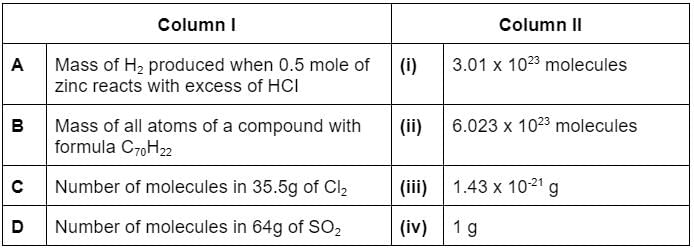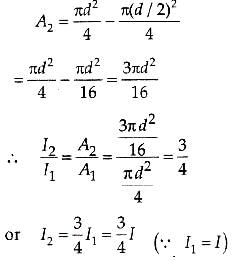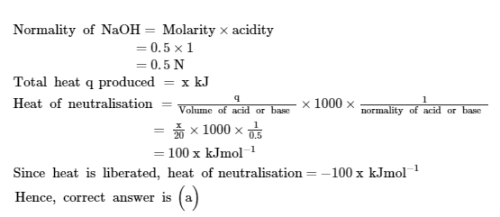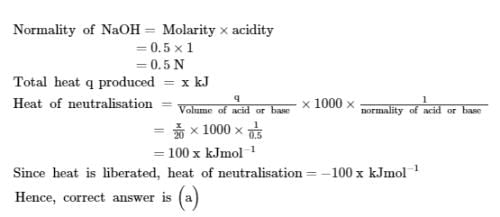Chandigarh TGT Science - Non Medical Mock Test - 2 - SSA Chandigarh MCQ
30 Questions MCQ Test - Chandigarh TGT Science - Non Medical Mock Test - 2
6 persons are sitting in a car. The average weight of all six persons is 72 kg and the average weight of the car and all six persons is 180 kg. What is the weight of the car?
______ involves treating main memory as a resource to be allocated to and shared among a number of active processes.
Which of the following options is appropriate to show the numbers 9779851089510 in a cell?
When installing a peripheral, you also usually need to install a ______.
Designing screens uses principles
Direction: Choose the option closest in meaning to the OPPOSITE of the word given in capitals.
LAUDABLE
Direction: In the following question, a sentence has been given in Active/Passive Voice. Out of the four alternative suggested, select the one which best expresses the same sentence in Passive/Active Voice.
Rahul will pass the message.
Direction: In questions below, choose the word opposite in meaning to the given word.
Safe
Teddy was told by his class teacher that schools are like a social agent and hence, an important part of the society. The class teacher referred to schools as a social agent because
Linda wants to develop her teaching skills. She has been reading a lot of good books related to education. Most recently, she discovered that according to Plato, the major role of education is
The following three aspects of intelligence are dealt with by Sternberg's triarchic theory except:
A current in a wire is given by the equation, I =2t2 − 3t + 1, the charge through cross section of wire in time interval t = 3s to t = 5s is
A lens having focal length f and aperture of diameter d forms an image of intensity I. Aperture of diameter d/2 in central region of lens is covered by a black paper. Focal length of lens and intensity of image now will be respectively
The earth takes 24 h to rotate once about its axis. How much time does the sun take to shift by 1º when viewed from the earth?
In the Young’s double slit experiment, the distance of p th dark fringe from the central maximum is:
An object is placed at a distance u from a concave mirror and its real image is received on a screen placed at a distance of v from the mirror. If f is the focal length of the mirror, then the graph between 1/v versus 1/u is
Match the column I with column II and mark the appropriate choice.

_________ are biocatalysts which speed up the reactions in biosystems.
Moseley performed experiments and studied the frequencies of which radiations emitted from the elements?
The amount of the heat released when 20 ml 0.5 M NaOH is mixed with 100 ml 0.1 M HCl is x kJ. The heat of neutralization is
Radiation of λ = 155 nm was irradiated on Li (work function = 5eV) plate. The stopping potential (in eV) is.
A variable plane is at a constant distance 3p form the origin and meets the axes in A, B and C. The locus of the centroid of the triangle ABC is
A point taken on each median of a triangle divides the median in the ratio 1 : 3, reckoning from the vertex.
Then the ratio of the area of the triangle with vertices at these points to that of the original triangle is
The HCF of two consecutive numbers is
The inverse of a matrix is defined for
























